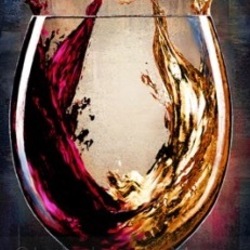Vigneron A Mareuil Sur Cher
Marc Hébrart
Mareuil Sur Ay 1er Cru Blanc de Blancs Extra Brut Chardonnay
Fantastic out of a magnum. Brie & water cracker and bubbles! — 8 months ago
Marc Hébrart
Extra Brut Mareuil-Sur-Ay Champagne Rosé Blend
My go to rosé and for good reason. The sweet smell of summer and romance is all over this. Cranberries and wild strawberries with a nice herbal element. The wind in her air and a song on her lips. Chalk and honeysuckle with a nice touch of yeast notes.
Chardonnay dominant with an extra brut dosage. Crisp, refreshing, and utterly delicious. Inviting and generous with racy acidity and a ton of character. Focused with plenty and depth. Summer berries in the mouth along with memories of that weekend on the beach with her. For me, an essential champagne to always keep on hand. For remembering those more blissful times.
— 2 years ago
Marc Hébrart
Mareuil Sur Ay 1er Cru Blanc de Blancs Brut Chardonnay
L542. Pleasant champagne with almonds, marzipan, ginger, red ripe apple, a bit unrefined mousse. — 13 days ago
Marc Hébrart
Mes Favorites Vieilles Vignes Mareuil Sur Ay Champagne Blend
Hebrart: Popped and poured; enjoyed over the course of an hour. No formal notes. As the name suggests, this is a selection of Jean-Paul’s favorite sites. In this case, old vine sélection massale from: Faubourg d’Enfer, Pruches, Haut Varille, Croix Blanche, Maladrie, Beauregard, Ramonette, Bisson St-Loup, Côtes, and Sente des demoiselles. All 1er cru sites, obviously and roughly 3/4 Pinot Noir with the balance Chardonnay. It’s delicious. In the Hebrart style, this is fresh with loads of bright raspberry fruit, citrus and minerals along with great acid and good bubbles. Drink now through 2037. Disgorged April of 2021 and based off the 2017 vintage. — 5 months ago
Philipponnat
Clos des Goisses Champagne Blend 2004
Happy New Year’s Eve to you all! 🎉
To celebrate the holiday, we’re popping this special bottle of bubbles we’ve been eager to try. 😝
It’s Champagne Philipponnat’s 2004 vintage champagne made with 65% Pinot Noir and 35% Chardonnay hailing from a single clos – Clos des Goisses – surrounded by a traditional stone wall in the Village of Mareuil-sur-Aÿ. 🍾
Talk about a singularity of place! It was first produced as a single vineyard wine in 1935, a pioneering approach for a Champagne House in a land known for regional blending.
After fermentation, this wine aged on the lees for 10 YEARS in Philipponnat’s historic cellars in Mareuil-sur-Aÿ; a Premier Cru Village of the Grand Vallée de la Marne, located on the southerly flank of the Montagne de Reims, where Pinot Noir dominates like in the Grande Montagne.
Okay for the tasting note! Wow. 🤯 It has pastry, brioche, nougat, and marzipan for days, next to toasted almond, lemon curd, white peach, baked yellow apple, dried chamomile, blossom, and wet slate notes. Despite its unequivocal richness, it has a spine of acidity lending balance and brightness.
Cheers to 2025; may it be filled with hope, health, joy, adventure, and amazing sips! 🍾🥂 — a year ago

Billecart-Salmon
Le Clos Saint-Hilaire Brut Blanc de Noirs 2005
Prior notes continue to apply…
When we visited Billecart-Salmon in October of 2021, we received a tour of the stunning estate. Along the way, our guide, Jerome, paused near a traditional “Clos” (a single vineyard, enclosed by a wall) on the property.
We could see a beautiful stone wall, surrounding a tiny 1 hectare parcel of “Clos Saint-Hilaire,” named after the Patron Saint & local church in Mareuil-sur-Aÿ, where Billecart-Salmon is located.
Although we didn’t go into the Clos, we learned about how special this parcel is to the family; how it’s exclusively planted to Pinot Noir with vines dating back to 1964; how work in the vineyard is performed by hand and horse-drawn plows; how this parcel is farmed according to an age-old savoir-faire, adhering to principles of sustainable viticulture.
The wine is pale gold with a prominent bouquet of yellow apple, Anjou pear, raspberry, lemon curd, white peach, white blossom, desiccated white rose, wet stones, biscuit, brioche, almond paste, marzipan, crusty croissant, pie crust, toast, creamy texture and persistent, fine-beaded mousse and long elegant finish.
This is a 2005 “Blanc de Noirs” Champagne, comprised of 100% Pinot Noir, all coming from Le Clos Saint Hilaire, vinified entirely in oak casks to lend texture and body, and aged over 13 years sur lie prior to its recent release. Due to the vineyard’s small size, production is very limited, and wine only produced in the best vintages.
Cheers to beautiful wines expressing a singularity of time and place!
Billecart-Salmon Le Clos Saint-Hilaire (2005). — 5 months ago


Marc Hébrart
Special Club Brut 1er Cru Champagne Blend 2018
Very surprised by this, but I guess no Mark Hébrart should be all that surprising. Definitely punches above its weight class, and has many similarities to the 2012/2013 PRSWC. Alluring freshness and vibrancy coupled with a shocking level depth and roundness. Very well balanced all-around; looking forward to cellaring the 2019s. Mouthfeel is pure velvet via a delightfully soft / oily texture. 60% Pinot Noir + 40% Chardonnay; Dosage: 4-6 g/l. Disgorged: 1/18/22 — 10 months ago








Jay Kline

The Hébrart domaine is located right on the Marne, in the village of Aÿ, catty-corner to Philipponnat. Their 1er cru Rosé, NV is a 60/40 mix of Chardonnay and Pinot Noir, aged in INOX (with a small portion of the PN added as vin rouge aged in barrique). What’s most important, is that it’s delicious.
Popped and poured; enjoyed over the course of an hour. The wine pours a very pretty pink color with a persistent mousse. On the nose, the wine is developing with notes of ripe strawberry, raspberry, lemon, pink flowers, marzipan and limestone minerals. On the palate, the wine is dry with medium+ acid. Confirming the notes from the nose. The finish is medium+ with a lovely, creamy texture. Serious enough for the nerds; seriously gluggable for the revelers. Disgorged April of 2023. Drink now. — 17 days ago